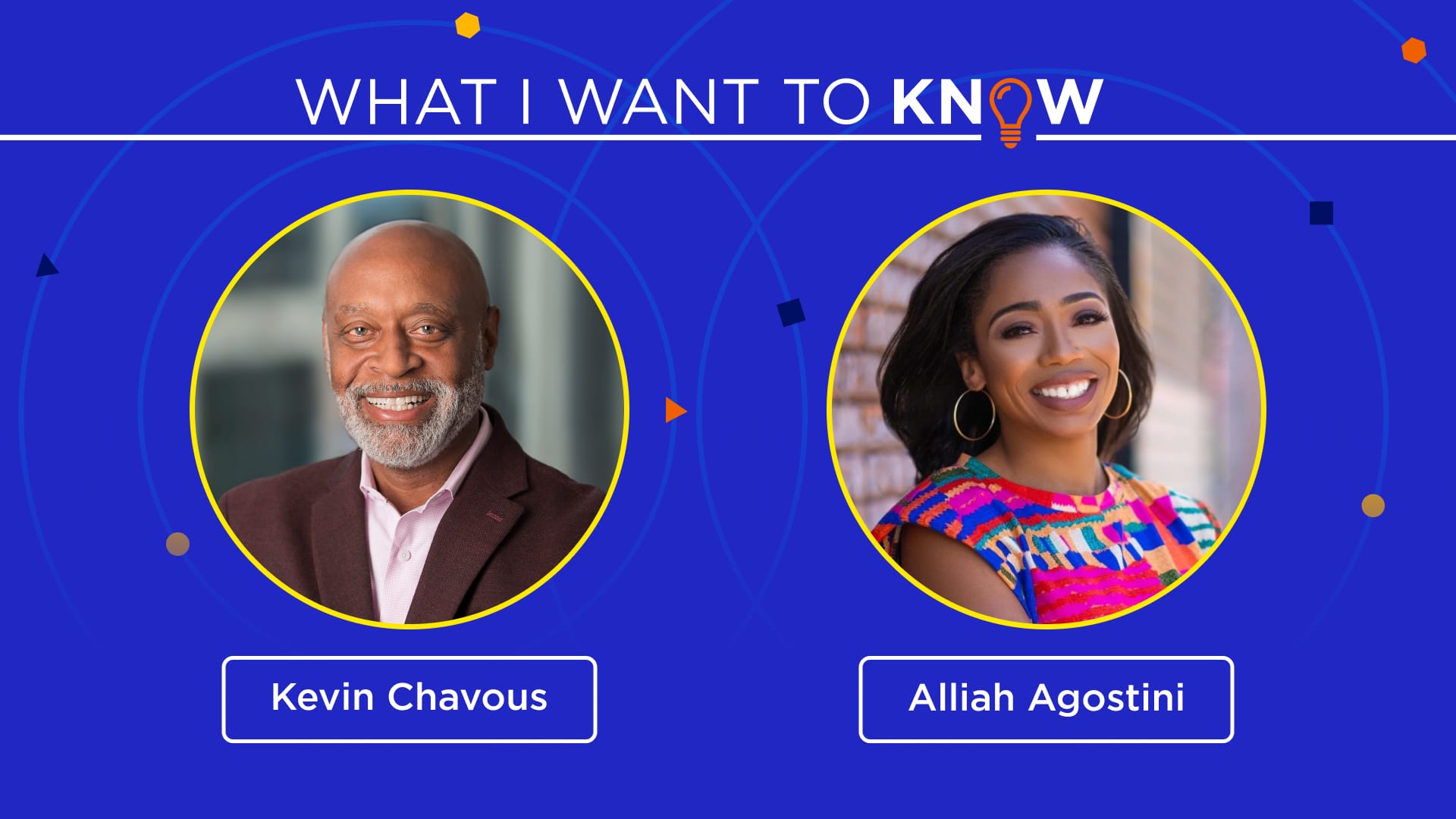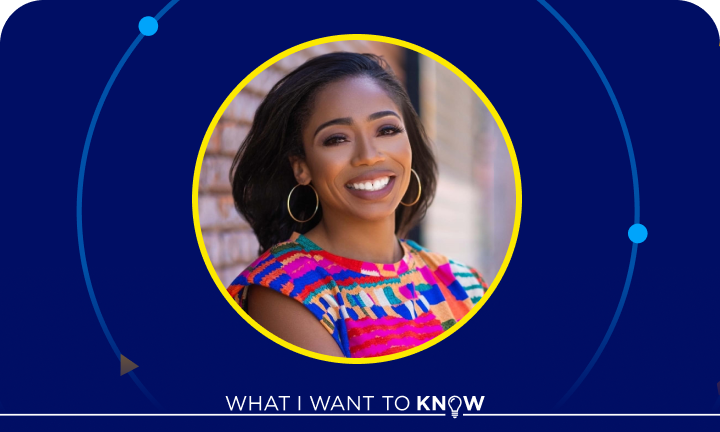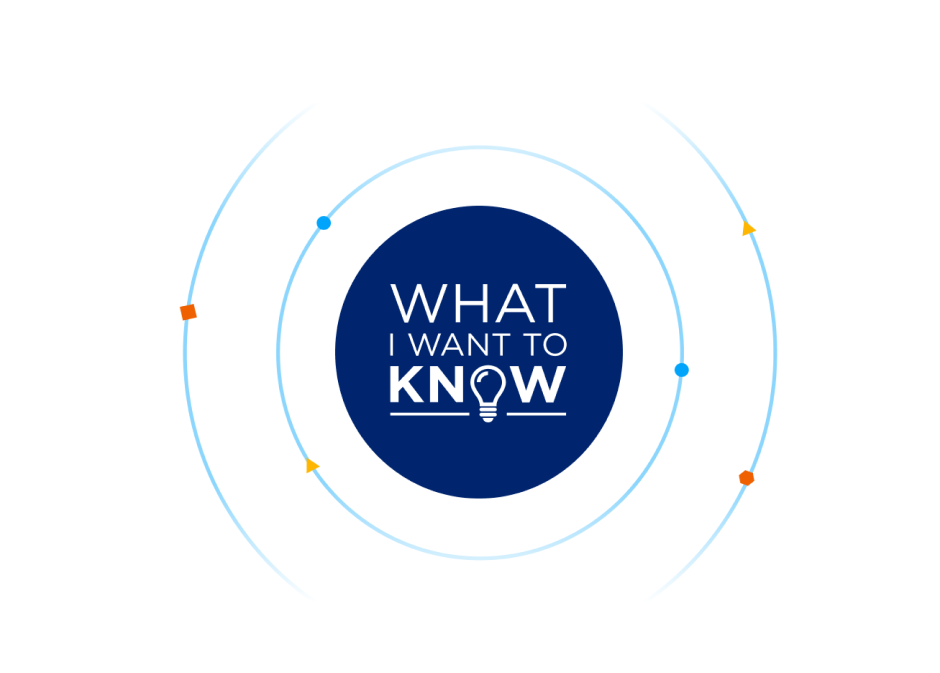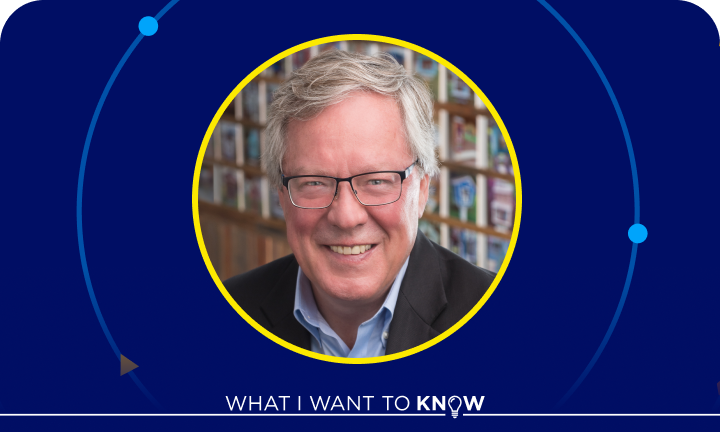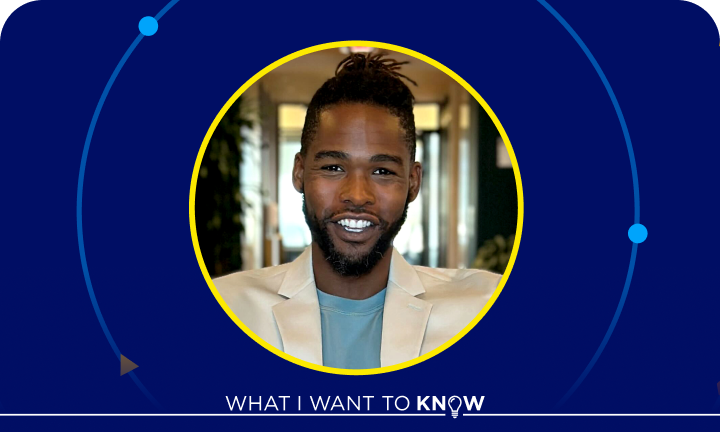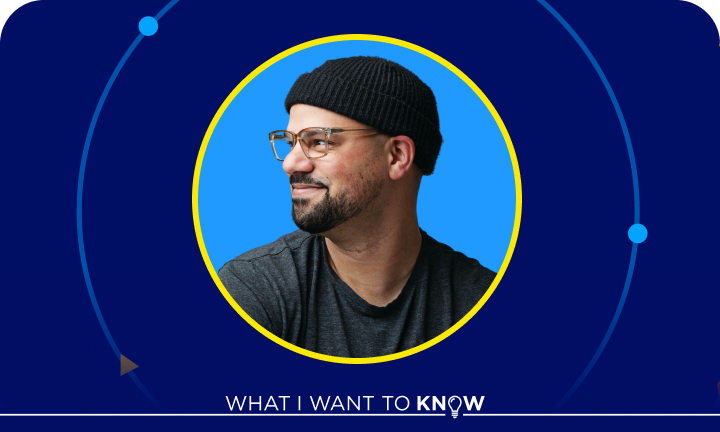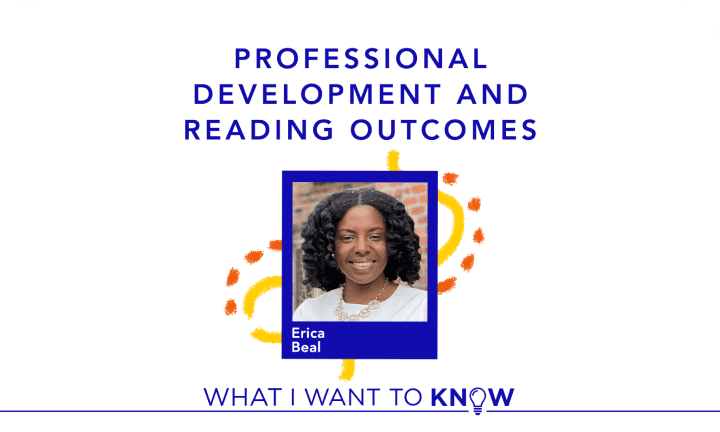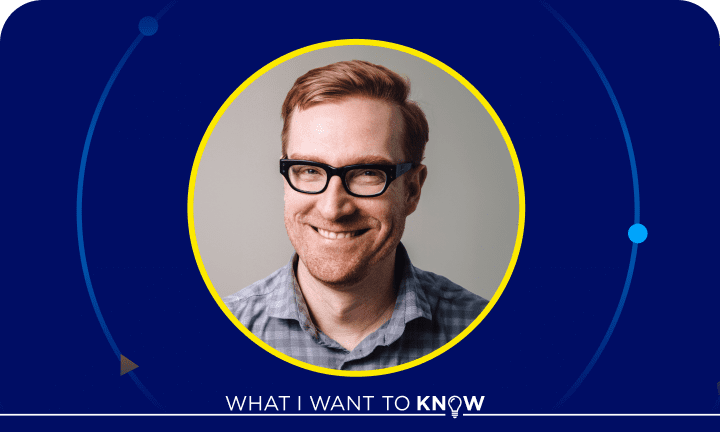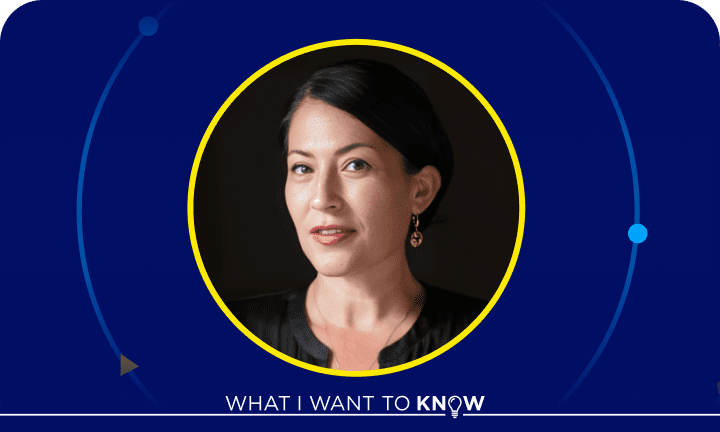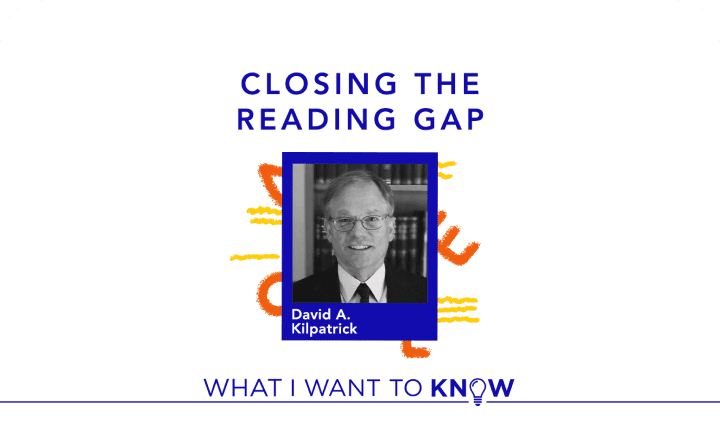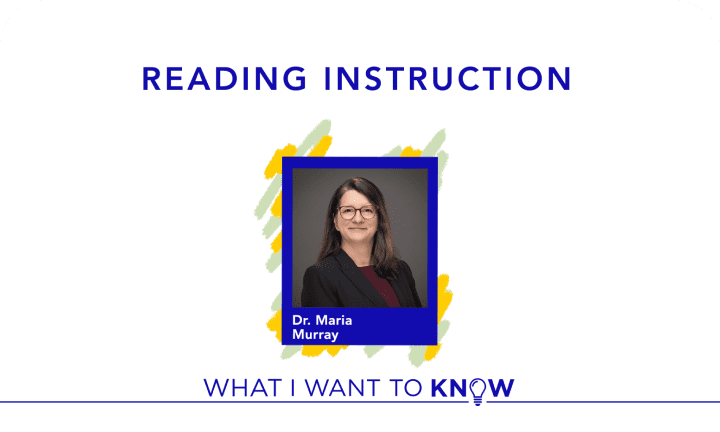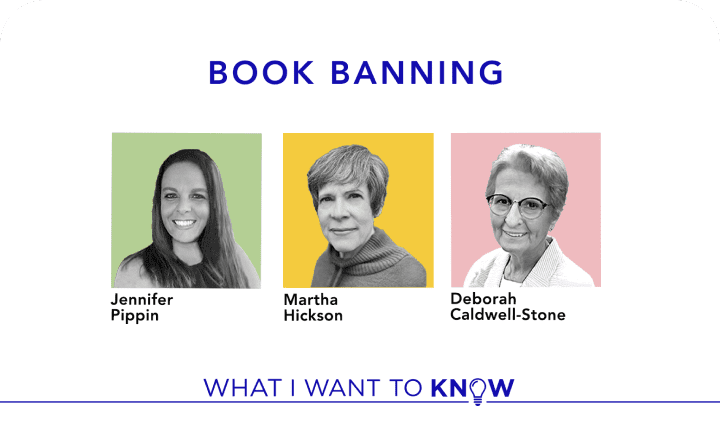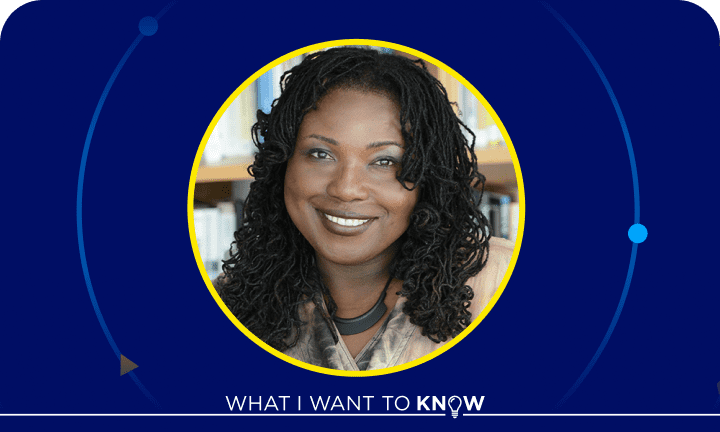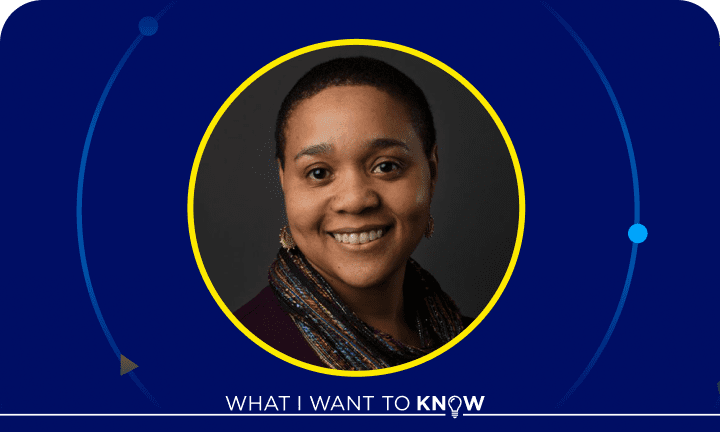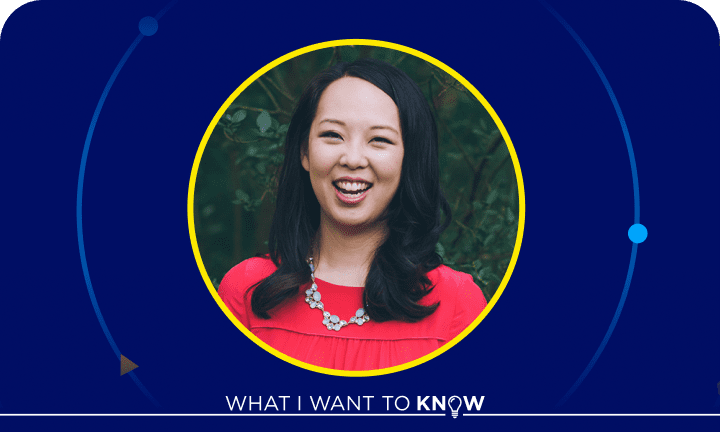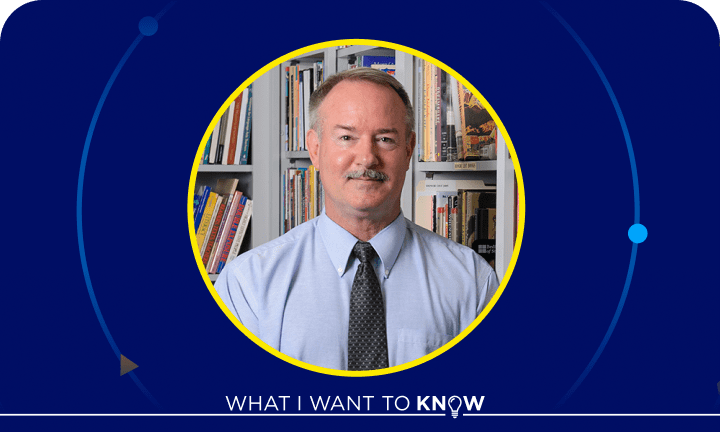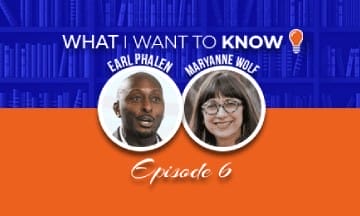EPISODE 147
Why does representation matter in children’s literature?
Over the past decade, children’s literature has become far more diverse. In fact, research found that in 2022, about 45% of kids’ and teens’ books had a nonwhite author, illustrator, or compiler, which was up from only 8% in 2014.
How can we encourage representation in children’s books? What are the impacts of diverse representation in children’s literature? And why is it important for kids to see themselves in their favorite books?
In this episode, Alliah Agostini joins Kevin to discuss why representation matters in children’s literature.
Listen on: Apple Podcast, Spotify
Meet Greig
Alliah Agostini is an author and speaker. She has written several books, including the acclaimed The Juneteenth Story: Celebrating the End of Slavery in the United States and the upcoming Oprah Winfrey: A Little Golden Book Biography.
Alliah writes to spread joy and truth and to help more children see themselves reflected on the page.
Kevin: March is National Reading Month, and “What I Want to Know” is celebrating with some very special guests. Greig Metzger from Little Free Library will discuss how books can build community. Literacy influencer Oliver James will share his inspiring story of learning how to read. Jelani Memory and I will talk about how books can introduce kids to tough topics. And author Alliah Agostini will speak on representation in children’s literature.
Educators and parents everywhere want to instill in kids a lifelong love of reading. So make sure to catch these important conversations by subscribing to “What I Want to Know” with Kevin P. Chavous on Apple Podcasts, Spotify, or your favorite podcast or social media platform. And visit k12.com/reading for more resources.
Alliah: You know, children learn so much, and they understand so much. And that’s why myself and other authors, you know, like me are trying to create books that both tell true stories about, you know, what happened in the past and are also trying to create nonfictional narratives that elevate who we are, that clearly that humanize us.
Kevin: Over the past decade, children’s literature has become far more diverse. In fact, research found that in 2022 about 45% of kids’ and teens’ books had a nonwhite author, illustrator, or compiler, and that was up from only 8% in 2014. How can we encourage representation in children’s books? What are the impacts of diverse representation in children’s literature? And why is it important for kids to see themselves in their favorite books? This is “What I Want to Know,” and today I’m joined by Alliah Agostini to find out.
Alliah Agostini is an author and speaker. She is the author of several books, including the acclaimed “The Juneteenth Story: Celebrating the End of Slavery in the United States” and her most recent book, “Oprah Winfrey: A Little Golden Book Biography.” Alliah writes to spread joy, truth, and to help more children see themselves reflected on the page. She joins us today to discuss why representation matters in children’s literature. Alliah, welcome to the show.
Alliah: All right.
Kevin: I’m excited to have you on. The work you’re doing is important. But before we get into the books you’ve written and this commitment that you’ve demonstrated in terms of making sure there’s diverse representation in books, talk about your journey to that point because you started out in marketing.
Alliah: Yes.
Kevin: And you did a pivot.
Alliah: A couple of pivots actually along the way. Yeah, yeah. No, it’s a great point. It’s so funny you always talk about what you want to be when you grow up, but you never realize that you might be more than one thing by chance.
Kevin: Yes.
Alliah: And so thank you so much for having me. So my journey to kids’ publishing, interestingly enough, after I graduated from undergrad with a degree in economics, I actually went into publishing, but I was on the magazine side of things. So I started at Time, Inc., and I worked in single copy sales of magazines, which were much, much bigger, you know, at that time than they are now, although they’re still very important. I love the printed word.
Kevin: Yeah.
Alliah: But I knew I wanted to do something more a little bit more creative. I was working more on the sales side of things. So I went back to business school with the intent to go into consumer packaged goods marketing. And I wound up working at P&G after that, and I marketed tampons. So it’s still paper adjacent, a little bit different. Then I . . .
Kevin: I actually just caught that. But that’s good. Go ahead.
Alliah: Yeah, you know, [inaudible 00:03:55] you know, pulp in a different sense of the word.
Kevin: Right, right.
Alliah: Then I wound up working in beauty, at a relatively small company called EOS Products, and I was there for a number of years before I had my first child. And when I had my daughter, I wound up staying home with her for a little while. Then I went back into marketing, doing more freelance marketing consulting. But it was wonderful because I was re-exposed to children’s literature again, and I loved reading when I was a kid. Obviously, I had always loved the printed word in some way. And, of course, the marriage of print or words with pictures especially were particularly compelling to me.
So I was so encouraged by all the books I was seeing. But as I started looking at some of the flaps, and sometimes you’ll see pictures of the authors and sometimes you won’t, I started realizing that even though the pictures of the children on the books might have been a little bit more brown, those stories weren’t necessarily being told by people that look like us. And I had ideas for stories every now and then, and I’d jot them down in my Notes app or my Evernote app. And I didn’t really think of myself as a writer. I thought of myself as more of a math person.
And I kind of got to a point, and actually it was around the pandemic, a little bit before then, when I had this one book, a story that was kind of centered around my own difficulties on the first day of school with having a less pronounced name. And I realized that there were so few, you know, books around that territory. I was just really compelled to kind of make sure I could figure out a way to tell the story and bring it to life.
So I started talking to whomever I could about publishing, people that had self-published, talked to people that had traditionally published. Did all the wrong things. Asked random friends with illustrator friends, like, “Can illustrate my book?” It’s like, “No, you can’t ask that very famous illustrator. It doesn’t work that way.”
But I kind of stumbled my way, asked my way into finally writing more and really believing in what I wanted to tell. And ultimately, I wound up being agented in 2021. And there’s a lot between there, but the reality was I realized I had a story that I wanted to tell and ultimately far more.
Kevin: So let me ask you. There are a couple things you said that I want to unpack. One is this idea of developing a love of reading. I mean, to me, reading is a huge, huge issue in this country because far too many of our kids are graduating not able to read at grade level. And oftentimes, when you talk to people who have a love of reading, there was some adult, a parent, a caretaker, someone who sort of introduced them to it or socialized them to the idea of reading, and that’s where it came from. Did you have a similar experience?
Alliah: Yeah. I mean, one of my earliest memories was when I was 4, I used to go to this music class. And immediately afterwards, we’d go to the bookstore across the street from there. My favorite thing was picking out a book. I love these [Misty 00:07:02] books. They were these simple little books about a bunny. And I’d pick them out, or I’d get like a Little Miss and Little Mister, and that was like one of the highlights of my week.
My family on my father’s side is from Guyana, and my grandfather actually came to the United States to pursue his PhD in English. So writing kind of runs in my blood and reading too. So it’s really something that I’ve gotten from both sides of my family. My parents were educators, but their parents weren’t. So there’s been a love of learning and a love of reading kind of just instilled throughout my life. It’s really been part of how I was brought up and something that I’m trying to instill in my children too.
Kevin: Yeah, it’s a powerful thing. And when you have that influence early on, it really sets you on the path of being able to be a critical thinker, to be able to make certain decisions, to know what feels right. And speaking of what feels right, you obviously have done several types of jobs, and you had a child. It sort of brought you back to the exposure of children’s books. Did you know that this is what you wanted to do in terms of children’s and kids’ publishing?
Alliah: It really is, and it’s so funny. I mean, I speak to some authors, and they’re like, “I always knew I wanted to be a kids’ author from when I was 6 years old.” That’s like that’s actually not my story. But I kind of love that it is. It’s just I’m big on intuition. And when something continues to nag at my spirit and my heart, I realize I have to go in that direction and trust it.
You know, during the pandemic, my attention was kind of pulled in a number of different directions. Obviously, my children were a priority. And with what limited additional time I had, there were a couple of other marketing types of assignments I could have done. But something really pulled me more so in the direction of wanting to make sure that I could pursue the stories that I wanted to tell.
But when I look at the things that I’ve done throughout my life, I always had a leaning towards writing and towards expressing myself through the written word in some way. And it’s always between that and chasing something that was a more creative option. I can kind of see where the connectivity lies, even though each path along the way seemed so potentially like random and discrete in different ways.
Kevin: I want to talk to you about the books you’ve written and why you chose the subject matters you did. But the last sort of background question is this idea of being a math person or a writer. You know, I happened to grow up in a family where my father was a pharmacist, a chemistry major. My sister is a biologist, another sister an accountant. My brother won the state science fair when he was in elementary school. But I could talk. We’re sort of used to this idea that you’re a math person or you’re a writing person. But I actually think that’s not a fair way to categorize people. I think that you can be both, and obviously you’re showing that.
Alliah: Yeah. I think it’s really important. I love seeing my children kind of growing and develop because they are in some ways a reflection of us. I see my daughter, who is like very, very artistic, but she also loves math too, and she also loves writing. I see so much of myself in her. And so that’s kind of really powerful to see the mirror reflected back.
I really want to encourage people to kind of see the connectivity between all the different things that we can be and all the things that we can be good at. I know some of my favorite things that I’ve learned at school were ways when I could connect one subject to another. I think people think of English as just being English, and math as just being math.
Kevin: Yes.
Alliah: But every discipline is interrelated. So I think we kind of see that later in life, and I certainly understand that you don’t have to be one of these people now. I certainly hope that kids understand that they can be good at multiple disciplines and that they all work together in really cool ways.
Kevin: Yeah, I think you’re absolutely right. I think that earlier generations, you find a job, you stick with it for 30 or 40 years. This is what you do. And sometimes you stumble into that job, or you’re pulled into a certain professional area of discipline. But now, the way things are, you can have it all. To that point, how did you come up with a book about Juneteenth? I found that fascinating that that would be one of your first forays into kids’ publishing.
Alliah: Yeah, that’s a great question. So the book actually came up in I guess that would have been June of 2021, or actually May of 2021. My publisher was looking for an author. They were interested in writing a book about Juneteenth. My agent approached me with the idea, and she was like, “Are you interested in writing nonfiction,” because I had primarily written fiction at that point. And when she mentioned it was a book about Juneteenth, I jumped at it because my family actually has a connection to that festival and has had one for a long time.
I’m from Buffalo, New York. But Buffalo has been celebrating Juneteenth since 1976. My grandfather is one of the founders of the Juneteenth Festival there, which is one of the longest continuing running festivals in the United States and also one of the largest too. I know at one time, it was at least the third largest in the country, which people wouldn’t expect because it’s in Buffalo, it’s not in Texas.
Kevin: Wow. Now I did not know that.
Alliah: Yeah, yeah. So it was really important to me to kind of be able to tell the story because I had always known about Juneteenth. And of course, around 2020, people were learning about it for the first time. So for me, it wound up being a great opportunity to kind of do some research on Juneteenth, understand its history, which is certainly not linear. But I really thought that it would be a powerful opportunity to both tell children and their families at the same time about the holiday because I knew that it would be a time when everybody is learning about it together. And that’s really part of the power of picture books. So I’m really grateful to have had that opportunity.
It wound up coming out at a time that wound up being really kind of troubling in our community because it was after the May 14th massacre in Buffalo. But the fortunate thing was it was able to shine a light on our Black community and how much we had been doing in support of Juneteenth even before it became a national holiday.
Kevin: Now when you talk about the process of writing a children’s book, as you mentioned earlier, a big part of that happens to be the illustrations. And so how did you blend that together? Did you find someone that you were in sync with? Was there a lot of back-and-forth? Just talk a little bit about that process because a lot of people now have more and more interest in kids’ publishing and being kids’ authors. So I think any light you can shed on that would be helpful.
Alliah: Certainly. So it really varies depending on the type of publishing method that you use. Because I’m traditionally published, oftentimes what happens is the editor and the art director will source the illustrators for our books. So in the case of “The Juneteenth Story,” they actually pre-identified Sawyer Cloud, who illustrated the book “The Juneteenth Story” and my upcoming book, “The Juneteenth Cookbook.”
In the case of my next book, “Big Tune,” I actually worked a little bit more collaboratively with the editor to find an illustrator, and we actually were able to . . . I found one online, on Instagram. It’s amazing what you can find with a good hashtag search. I found Shamar Knight-Justice, who’s actually an educator himself. He is a principal in Atlanta . . .
Kevin: Oh, wow.
Alliah: . . . and an amazing illustrator as well. So that wound up being more collaborative. So it really depends on the project. But you can certainly find some amazing talent online or through agencies and looking at the portfolios of their illustrators.
Kevin: How was the book received? It’s a powerful story. It’s nonfiction. So it’s a tough story as well. So talk about how it’s been received when you’ve had teachers or other folks share them with children.
Alliah: You know, the reception has been really strong. And I’m fortunate because I know how people have been receiving books that are about tough subjects, about Black history, pushing back against them. But I think because it’s told in more of a narrative format and it’s told in a way that I think it’s more digestible for children, it has been really well received by the educational community and used as a real resource to kind of tell people about Juneteenth, its history, and also to kind of be a call to action to make sure the kids are understanding that the struggle continues as well.
And the fact that I do have a personal connection, which is actually highlighted at the end of the book in the author’s note, I think is also kind of a great touch and a way for people to understand and for kids to understand this is actually part of this one kid’s history, that kid being me. And so it’s especially nice because that’s kind of coming up in the next book that we have coming out, “The Juneteenth Cookbook,” where we talk about some more ways for people to really bring the holiday to life. So I’m excited about that too.
Kevin: You kind of hinted at the pushback, the politics, so I’m going to go right there because we’re in a crazy time. And while sort of I guess I would say diverse representation in kids’ books has changed, in 2014, only 8% of the authors were authors of color, in 2022, 45% were authors of color. So it’s been a radical change. Yet, at the same time, because of the politics of the day and what I will call the tribalism or the either/or mindset that exists, you know, you have a number of groups protesting Black history, protesting having “diverse” books in school libraries. There have been fights in school board meetings. Parents have been arrested around the country in school board meetings.
There’s this tension around this subject, when 10 or 15 years ago it was understood that, you know, we’re a quilt in this country and there are people from all over, and to celebrate everyone’s heritage was really part of the order of the day. Talk about that and the importance of diverse representation. But I am, first of all, wondering if you do get any pushback, you know, obvious pushback in terms of your book.
Alliah: Yeah. You know, from a pushback perspective, it’s been fairly minimal that I’ve received directly. I’m not sure if my publisher has received anything that they’ve kind of shielded me from, to be honest with you. Periodically I do google the book. I did see that somebody tried to challenge the notion that it was part of the timeline or some background in the book that George Floyd’s murder was anything having to do with race. Somebody pushed back on that in some document. Anyways, people will find anything.
It’s really been unnerving. Black History Month, when I was in college and high school and elementary school, it was a given. It wasn’t something that people would push back on. I think what we’re really seeing is kind of like a direct resistance to all of the efforts that have been made post-2020 in the name of diversity and equity and inclusion. People are seeing the strength of these movements, and there’s this very direct and targeted backlash against it to kind of bring us back to the middle or maybe even more to the right. And I think people know that schools and children are particularly emotional touchpoints for so many people and kind of using them as a linchpin. And seeing what librarians are going through right now just trying to defend books, it’s really, really frightening. I think people just love to point to Texas and Florida, but the reality is we’re seeing these battles happening in every state.
Kevin: Yeah.
Alliah: And even blue states too. I just consider it part of my obligation to continue telling my truth. I mean, I feel it’s so frustrating that our truth, our existence is considered in some way controversial. I mean, I can only be me. My children can only be me. And the history that happened before we were here happened not because of us, not because of something that we did. But the reality is like we still need to share it, we still need to understand it, and it’s still up to us to make sure that our kids know what it is.
I think so many people are concerned that telling people the truth will make somebody feel bad, and that’s not what we’re trying to do at all. We’re just trying to make sure that we’re sharing information. You know, children learn so much, and they understand so much. And that’s why myself and other authors, you know, like me are trying to create books and other forms of media honestly that both tell true stories about, you know, what happened in the past and are also trying to create nonfictional narratives that elevate who we are, that clearly that humanize us, that show that we’re all part of the same quilt, as you said, but we all have slightly different patches and something different to contribute. I’m just amazed that we’re at this point.
Kevin: Yeah. You know, interestingly, Alliah, you said early on that the reason why you got into kids’ publishing or what drew your attention to it was your daughter and reading these books and seeing that there weren’t diverse authors, even though some of the children depicted in the books happened to be kids of color. How has your daughter responded to what you’re doing, and what has been her reaction?
Alliah: You know, it’s actually really cool. So now I have a daughter and a son, and they are 6 and 9 years old. So my 9-year-old is reading slightly older books. I’m writing mostly picture books. But my son is right within the target. But it’s actually a lot of fun for them. Their friends know me as like the lady that writes the books.
Kevin: I love that.
Alliah: It’s been fun. Yeah, you know, right? I’m like I live in a very literary community. I mean, I walk down the street and I see some very well-known authors. And I’m like, “I’m the lady that writes the books?” I’m like, “That’s more of an author than I am.” But anyways, I’ll take it. I’ll take it.
But when I’ve been going to book events and bookstores and libraries, and I oftentimes have my entourage and my children and my husband in tow, they really love it. It’s actually very cool for them. And oftentimes the thing that they don’t love is the fact that they don’t have the microphone. So they typically want to be the ones that are reading the books. They’ve heard it a number of times, so they could probably recite it word for word. So my daughter is like, “When is it going to be time to talk?” I’m like, “I love that for you, but right now they’re here to see me. Okay?”
But I think net-net it’s really cool because I didn’t know any authors growing up, and to be able to normalize this and to normalize using our creativity for good and to share it with other people, to my children and to their friends is something that’s really powerful, and I’m so grateful to be able to do it.
Kevin: Yeah. You can tell your daughter she’ll have plenty of opportunities for me time down the road.
Alliah: Yeah.
Kevin: So you enjoy the moment. A couple other questions. You mentioned “The Juneteenth Cookbook.” But you also have a book out regarding Oprah Winfrey. Talk a little bit about that.
Alliah: Yeah, sure. So I have a Little Golden Book, from the iconic Little Golden Books that’s been around for decades and decades, about the one and only Oprah Winfrey. So it’s more so targeted for a preschool age. Obviously, her life has been vast over these past 70 years, and she just celebrated her 70th birthday.
Kevin: Yes.
Alliah: But it kind of shares some of the highlights of her life. I wanted to make sure that I shared in a way that has celebrated the theme and the fact that she does like such a masterful job of making people feel seen and making people feel special. It’s funny. As I talked to parents who bought the book, friends of friends of friends, what kids kind of have garnered from the story has been very cute. Some people still know her as the lady that likes dogs a lot.
Kevin: Yeah.
Alliah: Some people know her as the little girl who told her kindergarten teacher that knows a lot of big words. And, of course, some people know her as like you got a car. You get a car. You get a car. But I think, at the end of the day, I think it’s really important to have books like Little Golden Books that talk about people that might not be as much in the public eye for the younger generations, but that are part of our living history right now and we need to make sure that they continue to live on.
So it’s really fun. It’s a Little Golden Book, illustrated by Tara Nicole Whitaker, who’s illustrated a number of Little Golden Books, who’s also, I think, an animation producer too. So that just came out this past November, and it’s actually available in really pretty broad distribution. I know it’s in Target stores as well as Walmart stores.
Kevin: That’s really awesome. Alliah, one last question. This is what I really want to know. Going back to the diverse representation issue in kids’ books, we have a fair number of educators, teachers, parents, and superintendents that listen to the show, and they all grapple with the political dynamics that exist. In fact, I had a couple school librarians on my show, but I’ve had other school librarians talk to me about how they will yield to the pushback as opposed to engaging in a fight, just to sort of maintain peace. What would you say to these folks in our schools that will help encourage them to continue to supply books that have diverse representation as authors and in the storylines? What would you say to them that will motivate them to follow their own conscience as opposed to yielding to the opposition?
Alliah: That’s a great question. Honestly, I’ll say and I’m lifting this from a campaign that recently I think it was We Need Diverse Books had, but it’s that book, they rise. There are so many people who have been able to feel things, especially children who have been able see themselves or something that they couldn’t necessarily articulate within a book, something that kind of brought them like a higher level of understanding because they connected to it in a book. And it is so powerful when you talk to people about their relationship now with literature and how certain books touch their lives. And so many of these books are the ones that people are challenging right now.
We shouldn’t expect librarians to be beaten and to be berated. But what we need to do is make sure that they know that the people who are challenging these books are, honestly, few and far between. They’re just the loudest voices. But I really encourage them to look to their broader community for support, to look to authors for support because we see you, we appreciate you, we need you because we have so many stories on our heart that we know would connect with young audiences, with old audiences too honestly. And we really appreciate and need them to continue to be the stewards of these stories and of this literature so that we can connect with the people and the children especially who need them most.
So I thank them for their efforts. They’re truly on the front lines of this battle that we’re in right now, and they really shouldn’t have to fight this fight alone. And so please just let them know that they have our support, and they have our immense, immense, immense gratitude as well.
Kevin: All right. Alliah, thank you so much. I really appreciate you joining us on “What I Want to Know.”
Alliah: Thank you so much for having me. Great conversation.
Kevin: Thanks for listening to “What I Want to Know.” Be sure to follow and subscribe to the show on Apple Podcasts, Spotify, or your favorite podcast app so you can explore other episodes and dive into our discussions on the future of education. And write a review of the show. I also encourage you to join the conversation and let me know what you want to know using #WIWTK on social media. That’s #WIWTK.
For more information on Stride and online education, visit stridelearning.com. I’m your host, Kevin P. Chavous. Thank you for joining “What I Want to Know.”
About the Show
Education is undergoing a dramatic shift, creating an opportunity to transform how we serve learners of all ages. Kevin P. Chavous turns to innovators across education, workforce development, and more to ask: “How can we do better?”
Related Podcasts
Listen to more podcasts about this topic.
Featured Resources
Discover more resources that address the topics impacting students, families, and educators today.
